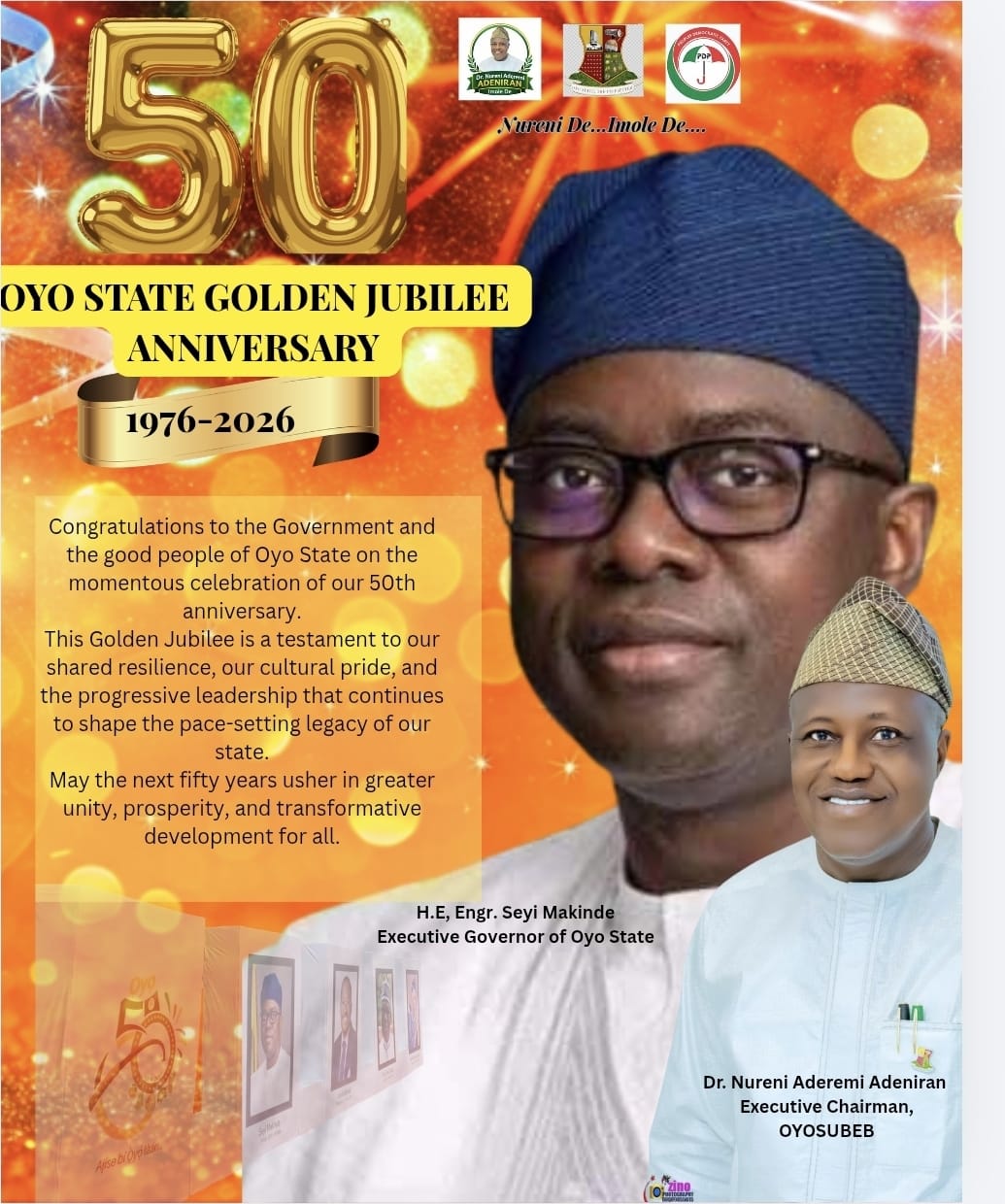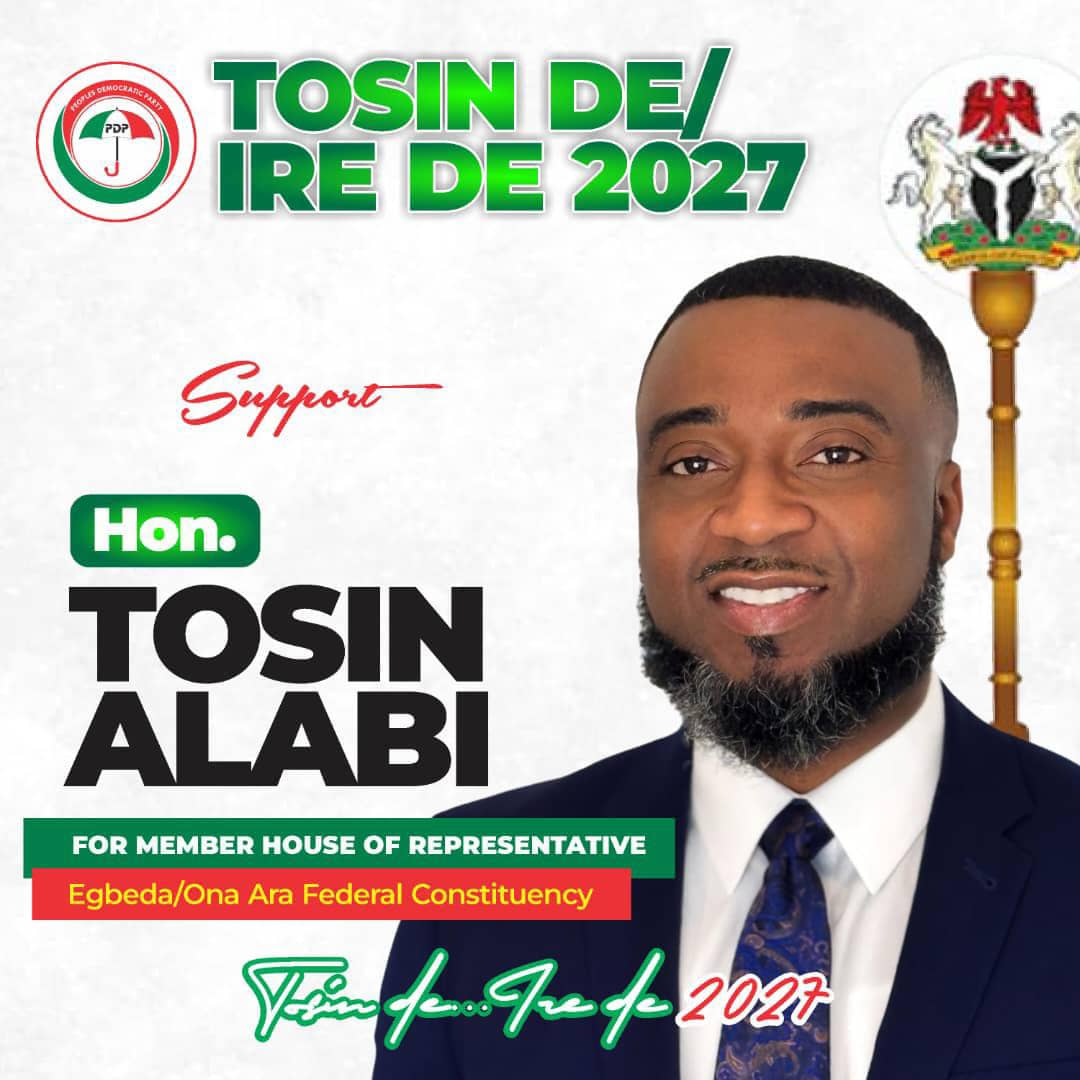With over 400,000 out of school children in Oyo, the state’s education system is faced with a number of growing issues. Among them include dilapidated classrooms, irregular payment of teachers’ salaries and lack of conducive learning environments.
The state has the highest number of out-of-school children in southwest Nigeria, according to a recent report by StatiSense, a data consulting firm. This is also evident in the 2018 West African Examination Council (WAEC) ranking. The Southwestern state ranked 26th position out of 36 states, It ranked among some low educational development Northern Nigerian states.

To solve one of the threats causing reduction of children in school, 39-year-old Jumoke Olowookere, launched Pp40, a project that seeks to turn waste into art and make school enticing for kids to attend.
Olowookere says Pp40 would gift 40 Public Schools in Oyo State a playground made from waste and training for its students on how to turn waste into art.

“It will also extend to more schools, getting the attention of big organizations and private individuals,” she dreams.
“The project will be more than merely managing waste and giving public school students a feel of the arts to creating a generation of individuals who would see saving the planet as a must for everybody.”
By embarking on the project, Olowookere will not only increase the number of children in the classroom, but she will also impact young kids to learn new things on how to monetise waste and in turn create a sustainable environment by contributing to various UN SDGoals.
Poor waste management system in Oyo state

A pungent smell there and heaps of dirt here, added to the speed with which waste fills the road as soon as it is cleared is a pointer to the culture of Waste management by residents of Ibadan, Oyo state.
An article published on a World Bank blog in 2017 notes that solid waste management has been a compounding issue for several decades in Ibadan, leading to communities being unwilling to pay for waste collection. This is impeding the private operators’ potential viability to provide services, as well as polluting the cities rivers and roadways thereby significantly increasing health risks.
Another study published in the Research Journal of Applied Sciences reveals that “few households patronise the waste contractors. Mere collection and disposal of solid waste constituted the activities of the contractor. None of them engaged in reuse or recycling of the waste.” Although, a chat with residents usually ends with fingers pointed at Waste Management contractors and the Oyo State waste Management Board.
The back and forth between government and residents, clearly indicates bad waste management practices and policies with practically no attempt to recycle and upcycle.

According to Olowookere, Pp40 will engage public school students and residents who make up the bulk of those living in communities in a dutiful collection of waste and recycling so that waste collected did not end up in Landfills.
How Jumoke Olowookere started the Pp40 project
 With experience up to 10 years in waste recycling and upcycling, Jumoke Olowookere initially believes focusing on creating art for her personal use and teaching young ones how to do it.
With experience up to 10 years in waste recycling and upcycling, Jumoke Olowookere initially believes focusing on creating art for her personal use and teaching young ones how to do it.
But from the first summer class for students which held in her Bodija home to teaching in elitist schools around the city, she realized that students in public schools were at a disadvantage, especially as it relates to arts and creativity.
This realization coupled with her need to create a learning friendly environment for kids and give back to humanity furled the idea, Pp40 project. After working with 21 school using personal funds, she got help from Guaranty Trust Bank – who sponsored 4 schools – and then other organizations.
“The Pp40 idea was just for me to bridge the gap between private and public schools, even if all the students would have is that 1 day art experience. Although I stopped using my personal funds after 40 schools, we still train students and create playground for schools when people or organisations commission us to do so.
“We have also invented the #Mycreativebirthdaycelebration that allows an individual to mark their birthday by commissioning us to work with their alma mater.” She notes

Jumoke says that her passion for carrying out waste management projects in Ibadan stems from having lived all her life in the town. In carrying out the Pp40 project, she identified several issues with Waste Management in Oyo state then went on to launch “Africa Creative Hub”
“African Creative Hub (ACH) is a social enterprise. What we do at African Creative Hub is focus on Children and young adults because we believe that if we can focus on these group of people, we wont have many problem tomorrow. This is because we have been able re-orientate and reeducate them to show them what the adults have done wrong and why they don’t have to do the same thing. We believe that once we can catch them young, we wont have to be fighting this warfare against waste in the future”
Mirroring a cleaner and safer environment through Africa Creative Hub

In her ever bubbly voice, she shared her excitement about the latest project undertaken by ACH.
“We just finished the maiden edition of the Eco Hand day competition and which we also plan to take everywhere in Africa. The idea behind it is to bring together Primary and Secondary schools, both Public and Private to have a platform where they can look forward to working with waste into 3 categories; science fashion and art. Imagine if all the schools in Ibadan are practicing Waste Upcycling, it means we would have waste conscious children and teachers.”
This summer, Africa Creative Hub will hold waste management training for young ones but as opposed to the usual cash payment, the enrollment fee would be 200 plastic bottles. This would not only reduce waste littering in one of Africa’s largest cities but also enable children who would otherwise be unable to afford the opportunity to participate.

For Jumoke, the African creative Hub is on a mission to create a world without waste, the next stage is Community involvement especially with Collection of waste. She explains that there are plans in place to create Waste Collection Points across communities and create incentives for participating individuals, an obvious departure from the government approach of cajoling people to not dump waste on the road which has never worked.

As exemplified by African Creative Hub and Jumoke Olowookere, the answer to waste management in Ibadan and Oyo state, seems to lie beyond simply educating and begging the populace to pay for waste pick up. It is no longer enough to threaten defaulters with fine or jail term for dumping waste on major roads. A model that takes into consideration engagement alongside; Recycling, Reusing, Refusing, Repairing, Reducing and Upcycling would most likely be more effective.


























